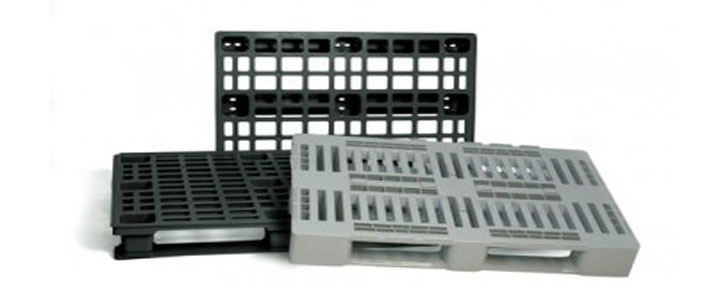Are plastic pallets the key to achieving lean manufacturing?
30 Jun 2016

The manufacturing industry, often touted as the bearer of Britain’s economic recovery, nonetheless operates with extremely slim margins.
In today’s febrile economic environment, making small cost reductions is highly significant. Operational cost reductions naturally go hand-in-hand with the priority, on both the company-wide and industry-wide levels, to develop ‘lean’ approaches to manufacturing operations.
One vital and yet underused tool in this drive to make operations leaner, which we explore in this article, could be the use of plastic pallets. Read on to find out why.
Materials handling revolution
Often thought of as nothing more than ‘moving things around’, materials handling involves the use, before, during and after manufacturing operations, of manual, semi-automated and fully automated systems and equipment to support the wider supply chain. Given how vital these material handling processes are, both to the manufacturing operations and the supply chain, it is obvious that improved or ‘leaner’ materials handling processes will deliver improvements in overall efficiency.
Indeed, implementing the right kind of lean materials handling processes can reduce costs, minimise surplus inventory and reduce delivery lead times.
The operative idea here is ‘the right kind’ of lean processes. Japanese firm Toyota are credited with inventing the lean manufacturing approach, and many western manufacturers have been to inspect Toyota’s production lines. Upon return, they have tried to emulate what they had seen by reducing inventory or simply cutting expenditure.
These attempts failed because they mistook the beneficial effects of lean manufacturing for the process itself.
The ‘seven wastes’
That said, what does the process actually involve, and how do plastic boxes and pallets fit into it?
Toyota’s lean manufacturing programme identified ‘seven wastes’, or activities which do not add value to the finished product, which must be minimised. The ‘wastes’ relevant to materials handling include ‘transportation’, ‘inventory’ and ‘motion’.
‘Transportation’ is the fact that every time a product is moved, it risks being lost or damaged. Plastic minimises these risks because, unlike wood pallets, they contain no nails and cannot splinter.
Whereas wood pallets must be heat-treated before shipping certain goods, in order to destroy bacteria, fungus and insects which permeate the wood, plastic pallets are impervious to such things.
‘Inventory’ refers to goods which are sitting around, as opposed to actively being used to create value. Wooden pallets often have to be replaced and typically have lifespans of three years, which leads to companies keeping storerooms full of spare wooden pallets.
‘Motion’ refers to wear and tear that accumulates over time. Plastic boxes and pallets reduce both of these wastes as they are highly durable, lasting up to 10 years, and there are many traders of used plastic pallets.
Conclusions
Whilst wood has historically been used as the primary material for pallet construction, many companies are now turning to plastic. Whilst wooden pallets often cost less than plastic initially, their longer lifespan, greater durability and superior versatility produce a very high return on investment in the long run.
